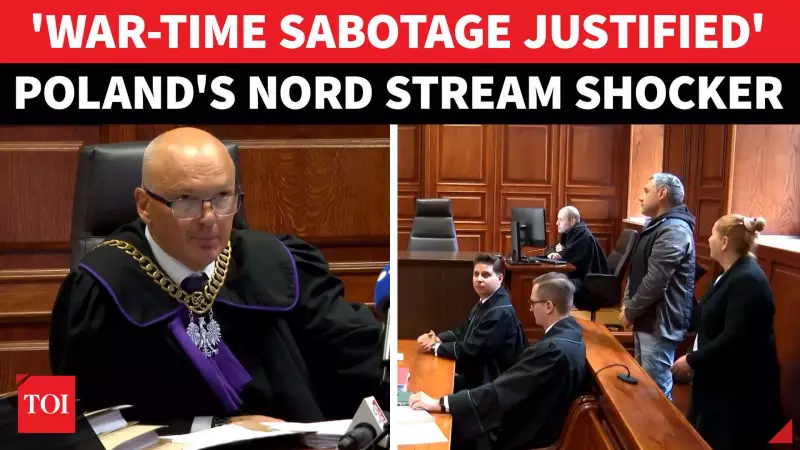
In a significant development that could reshape international legal precedents, Poland has officially declined to extradite a Ukrainian national suspected of involvement in the explosive Nord Stream pipeline sabotage case.
The Polish judicial authorities have invoked a rarely-used wartime immunity clause, creating a major obstacle for investigators seeking to question the suspect about one of Europe's most controversial energy infrastructure attacks.
The Legal Standoff Explained
The decision comes amid growing tensions between European nations regarding how to handle Ukrainian citizens involved in sensitive international cases during the ongoing conflict with Russia. Polish courts have determined that the current military situation provides certain protections against extradition for Ukrainian nationals.
This ruling represents a substantial setback for international investigators who have been pursuing leads in the mysterious September 2022 explosions that damaged the critical Nord Stream 1 and 2 gas pipelines running from Russia to Germany under the Baltic Sea.
Broader Implications for European Security
The Polish refusal to cooperate with the extradition request highlights the complex diplomatic balancing act facing European nations as they navigate:
- Support for Ukraine against Russian aggression
- Commitment to international legal cooperation
- Investigation of crimes affecting European energy security
- Sovereign interpretation of wartime legal protections
Legal experts suggest this case could establish important precedents for how Western nations handle extradition requests involving Ukrainian citizens during active military conflict.
The Nord Stream pipeline explosions have remained one of Europe's most politically charged mysteries, with various nations and intelligence agencies pointing fingers at different potential perpetrators while conclusive evidence remains elusive.





